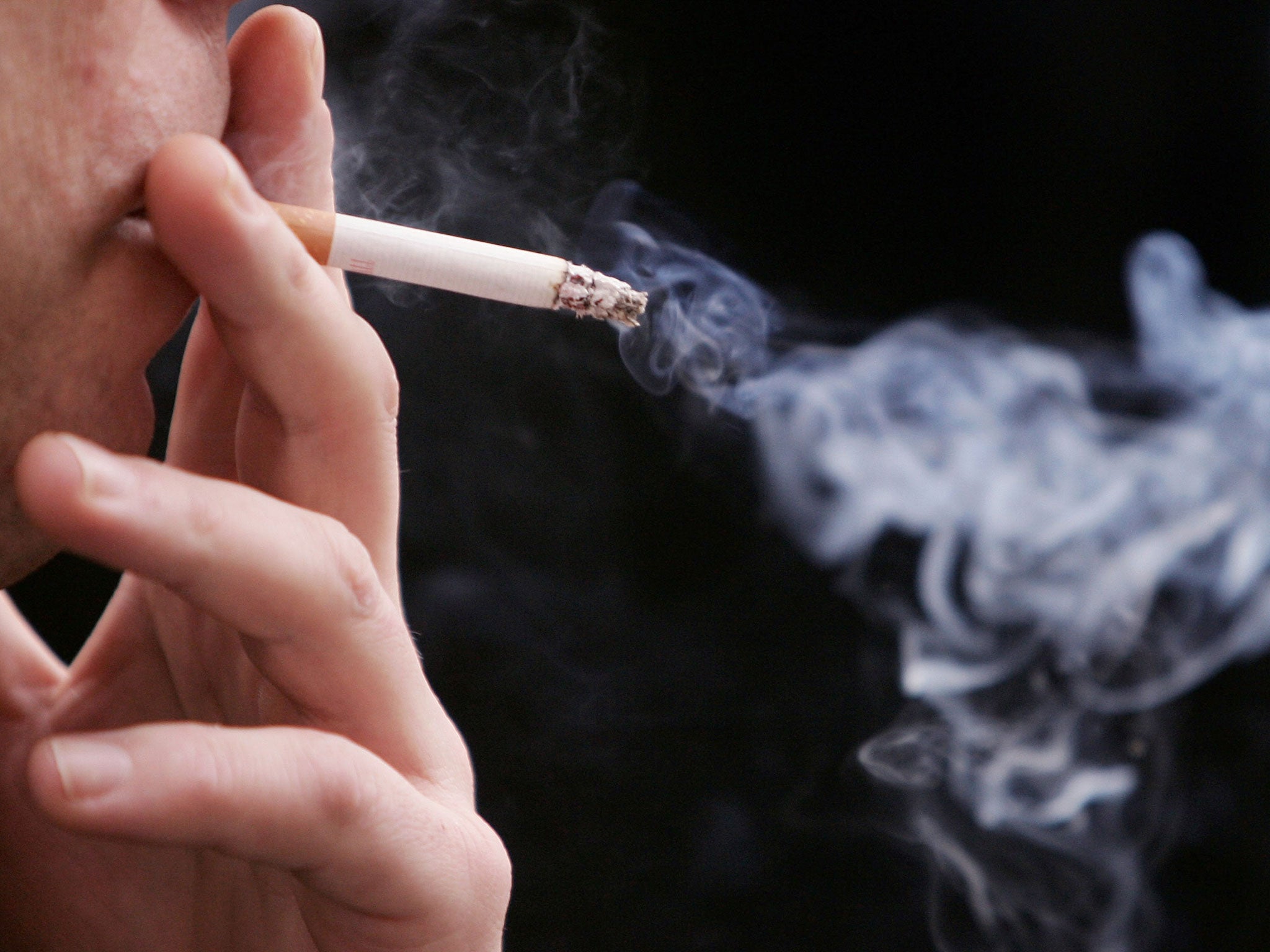No Smoking Day: How your body changes minutes after you quit
Your body changes immediately after you quit

From the canals of your ears to the intricate blood vessels of your circulatory system, smoking can harm almost every part of your body.
For those addicted to nicotine, giving up can be a daunting task and it is easy to feel that the damage has already been done.
But research shows that your body benefits just minutes after you draw a cigarette from your mouth and stub it out.
Here is a timeline of what happens to your body from the minute you stop smoking.
20 minutes
As you inhale, smoke and nicotine enters your bloodstream and the substance raises your blood pressure and heart rate. After you finish the cigarette, your heart rate and blood pressure return to normal.
8 hours
Carbon monoxide, the poisonous gas that kills over 40 people in the UK year if it seeps from faulty appliances in large quantities, is one of the 4,000 chemicals which enter your body when you smoke burning tobacco.
Nicotine and carbon monoxide start to leave your body and oxygen levels return to normal eight hours after you smoke.
24 hours
A day after your last cigarette, your lungs will begin to clear out the mucus and debris caused by smoking.
48 hours
Nicotine, a toxic liquid, is the chief active ingredient in tobacco and is highly addictive. Smoking also dulls your ability to smell and taste. Two days after you stop smoking, nicotine is eliminated from your body and your senses start to improve.
2 to 12 weeks
Smoking affects your blood circulation, making physical activity much more difficult. This in turn impacts your overall health. Stopping smoking makes exercise easier and improves breathing after a few weeks.
3 to 9 months
Months after you stop smoking, your health continues to improve. By this point, coughing, wheezing and breathing problems caused by the harmful chemicals in smoke are reduced as your lungs repair.
1 year
Smoking damages the lining of the arteries, and causes a fatty substances known as atheroma to narrow the arteries. This can cause heart attacks, strokes and angina. 12 months after you quit your risk of coronary heart disease is now half that of a smoker.
Thea Cunningham, Cancer Research UK’s health information officer, told The Independent: “Smoking causes at least 14 different types of cancer, including mouth, bowel and bladder cancer, and is linked to around 64,500 cases of cancer each year in the UK.
“When a cigarette burns, it releases a dangerous cocktail of over 5,000 different chemicals; many of these chemicals are poisonous and more than 70 may cause cancer.
“If you smoke, the best thing you can do for your health is to quit. There’s no such thing as a safe cigarette – whether you’re a social smoker or you use your tobacco in a roll-up, cigar or shisha pipe, it puts your health at risk.
“There is support available to help you quit - NHS Smokefree has a range of services that can help you keep on track.”
Lucy Wilkinson, Senior Cardiac Nurse at the British Heart Foundation told The Independent:
“Smoking is one of the biggest preventable causes of premature death in the UK.
"We already know that quitting smoking is the single best thing you can do for your heart health and it doesn’t matter how old you are or how long you’ve been smoking, as soon as you quit you’ll start to get the health benefits.
Join our commenting forum
Join thought-provoking conversations, follow other Independent readers and see their replies
Comments
Bookmark popover
Removed from bookmarks